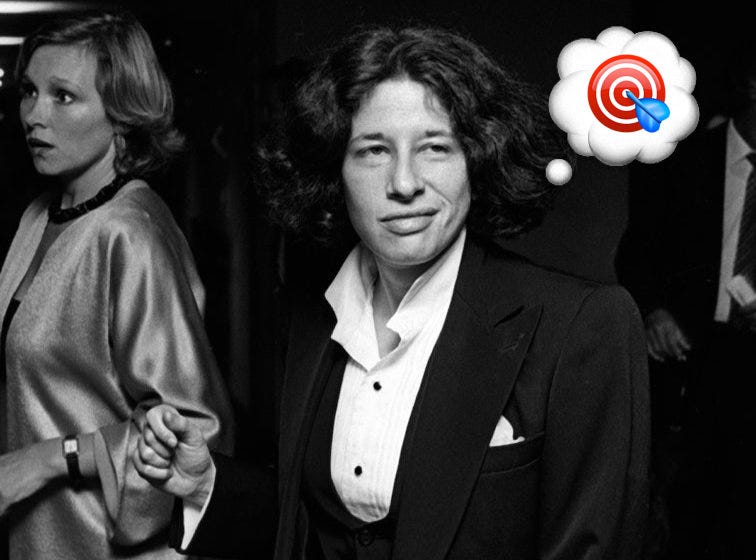
After last week’s issue on the loquacious Tallulah Bankhead, a perceptive reader — alright, you’re all perceptive — asked after her opposite.
If Bankhead spoke all the time and occasionally said something great, was there an example of someone who spoke sparingly but always well?
The answer: Fran Lebowitz. Sort of.
The New York writer also talks all the time: on stage, in interviews, as the star of a 2010 Martin Scorsese documentary. But she started as a writer, and her 1970s columns for Mademoiselle and Interview are marvels of clever brevity. Running at a crisp 800 words a pop, they were collected into two books, Metropolitan Life (1978) and Social Studies (1981), which were then republished as The Fran Lebowitz Reader in 1994. And that’s basically it. You can work your way through the Unabridged Lebowitz in an afternoon, and it would be time well spent.
There’s an old saying — variously attributed to Mark Twain, Woodrow Wilson, and Cicero — that you only write long when you don’t have time to write short. It’s true: Either the writer puts in the effort to distill what she’s trying to say, or the reader has to sift through too much text to find the point of it all. If you polish each sentence until it gleams, you’ve given a true gift to the reader.
The first essay in Social Studies, titled “People”, is such a gift. Lebowitz begins by arguing that all conversation in human history boils down to four basic sentences:
A. Hi, how are you?
B. I did not.
C. Good. Now you know how I felt.
D. Do you mind if I go ahead of you? I only have this one thing.
And from there, after a bit about everyone liking their eggs a particular way, she tosses off a series of remarkably good aphorisms about conversation:
Great people talk about ideas, average people talk about things, and small people talk about wine.
Polite conversation is rarely either.
The only appropriate reply to the question “Can I be frank?” is “Yes, if I can be Barbara.”
If you have a chance to see Fran Lebowitz talk, take it. She’s aged like a fine uncorked wine, and the resulting vinegar is one-of-a-kind. One caveat: Because she takes questions from the audience, she spends a lot of time these days talking about the world’s most powerful and least interesting person. If ever there were a case for brevity, he’s it. And you could argue she already summed up everything that’s now happening in Washington back in 1981:
Spilling your guts is just exactly as charming as it sounds.
Quick quips; lightning
“My liege, and madam, to expostulate
What majesty should be, what duty is,
What day is day, night night, and time is time,
Were nothing but to waste night, day, and time;
Therefore, since brevity is the soul of wit,
And tediousness the limbs and outward flourishes,
I will be brief.” — Polonius, noted windbag of Shakespeare’s Hamlet (1609).
He wasn’t.
“Mrs. Jay, aware that impropriety is the soul of wit, made observations in tones hardly above a whisper that might well have tinged the snowy tablecloth with a rosy hue.” — W. Somerset Maugham (1874-1965), in his novel The Moon and Sixpence (1919)
If you can’t keep it short, keep it scandalous.
“Brevity is the soul of lingerie.”— Dorothy Parker (1903-1968)
The pinnacle of Parker’s early career as a caption writer for Vogue.

That’s the seventeenth issue of Get Wit Quick. My book Elements of Wit: Mastering The Art of Being Interesting was only as long as it needed to be. Tap the ❤️, pls.

